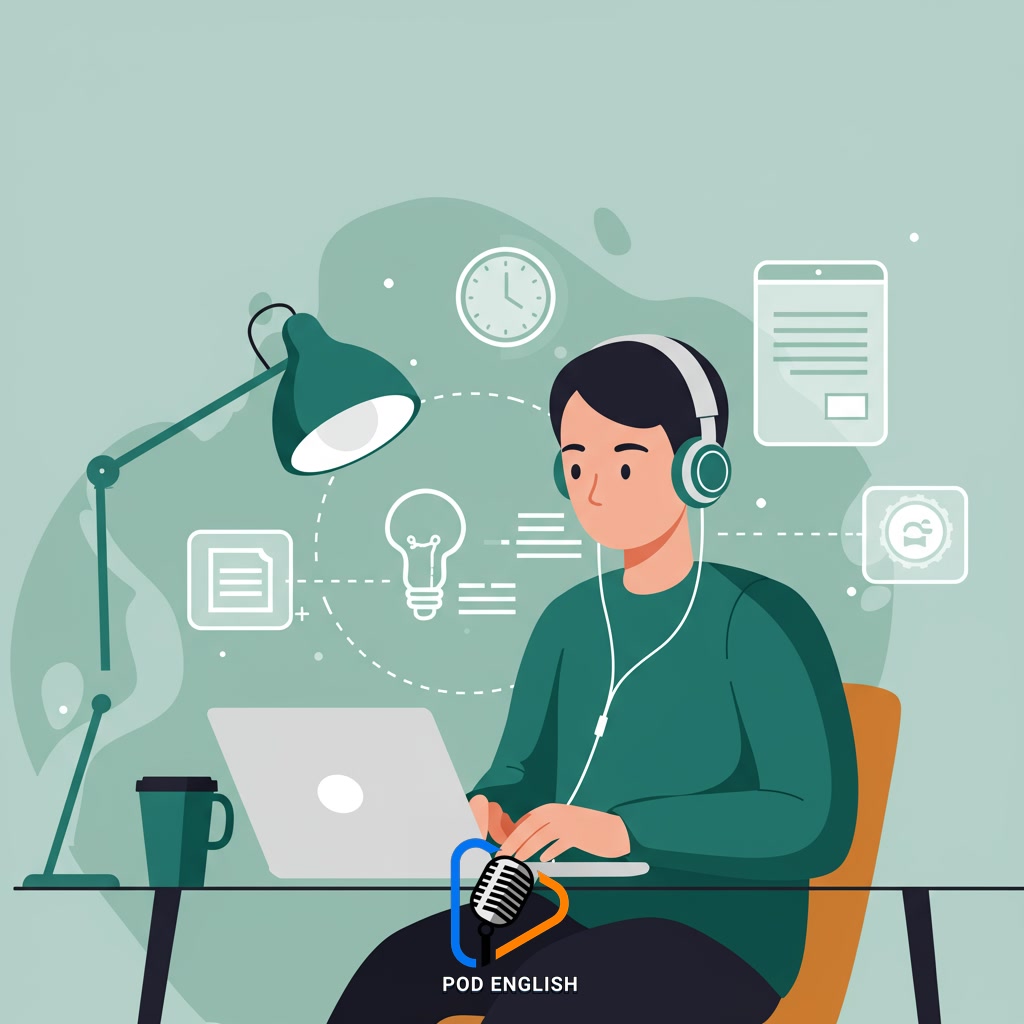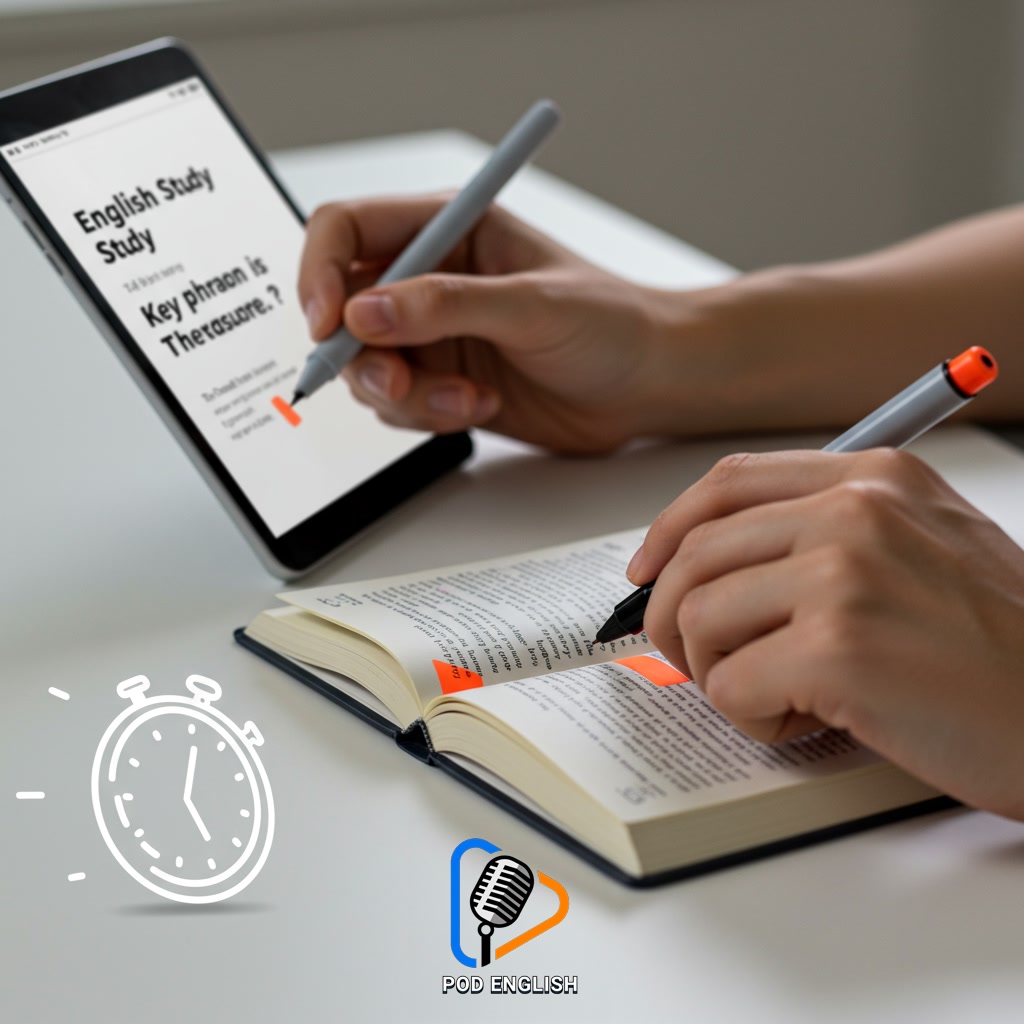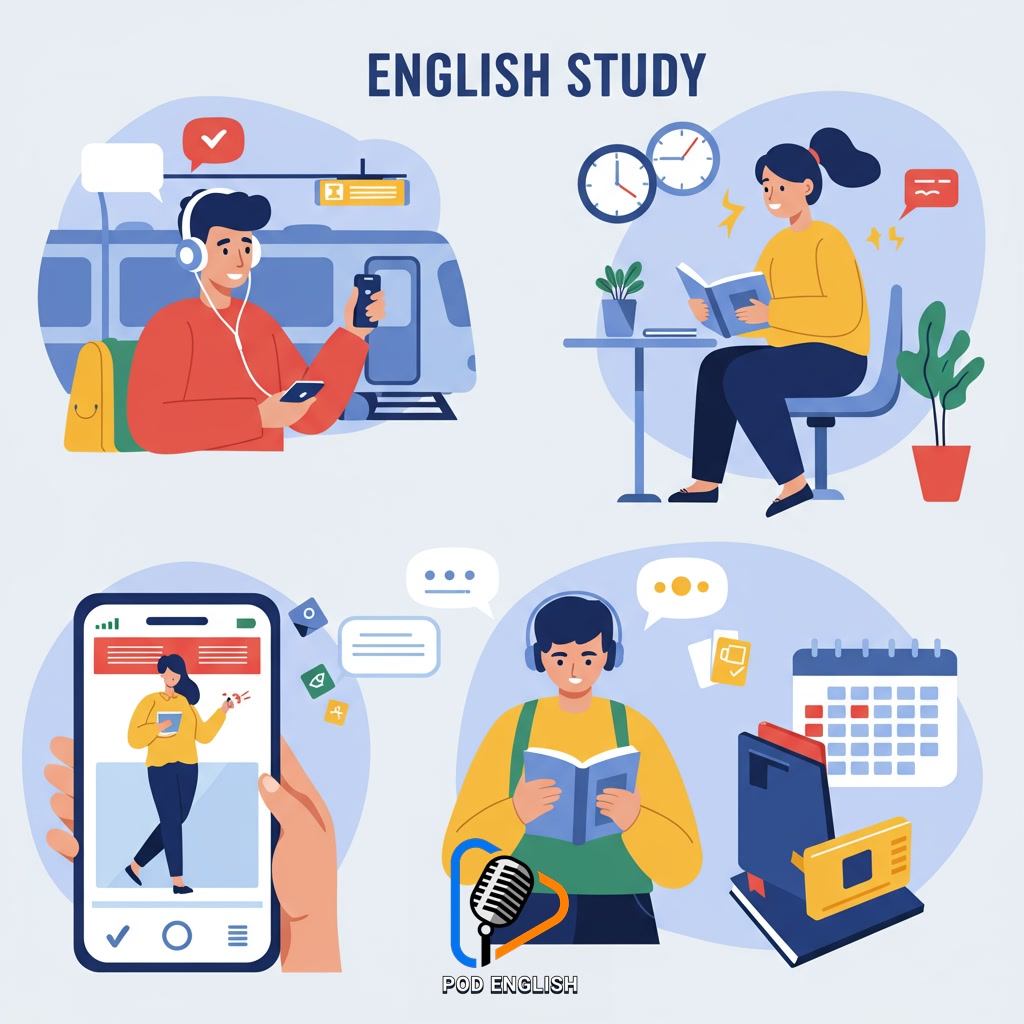Learn English
Mastering English Study: Smart Strategies for Balancing Learning with a Busy Schedule

This content focuses on mastering English proficiency through smart strategies. It offers practical techniques for individuals with busy schedules to integrate effective study methods. The aim is to provide actionable approaches that allow learners to consistently practice and develop their English skills despite time constraints.
Table of Contents
- Section 1: Understanding the Challenge: Why Busy Schedules Make English Study Difficult
- Section 2: Setting Realistic Goals and Crafting Your Personalized Study Plan
- Section 3: Finding and Maximizing Small Pockets of Study Time
- Section 4: Effective Learning Techniques for Limited Time: Focus and Efficiency
- Section 5: Leveraging Technology and Resources for Flexible English Learning
- Section 6: Staying Motivated and Tracking Progress Amidst a Hectic Life
- Section 7: Putting It All Together: Integrating English Study into Your Daily Routine
Section 1: Understanding the Challenge: Why Busy Schedules Make English Study Difficult
Busy schedules present significant obstacles to consistent English study. Many learners find themselves constantly short on time, with work, family commitments, and social obligations consuming most of their day. This lack of available time makes it difficult to dedicate focused periods to learning, practicing grammar, expanding vocabulary, or improving speaking skills. Furthermore, even when a small window of time appears, fatigue from a demanding day can reduce motivation and cognitive ability, making effective study challenging. The fragmented nature of a busy schedule also hinders the ability to establish a regular study routine, which is crucial for language acquisition. Competing priorities often mean English practice is the first thing to be dropped when time is tight, leading to inconsistent progress and feelings of frustration. Understanding these specific challenges is the first step toward finding effective solutions.

Understanding the Challenge: Why Busy Schedules Make English Study Difficult
Section 2: Setting Realistic Goals and Crafting Your Personalized Study Plan
Following the acknowledgement of busy schedules, the crucial next step is to establish realistic expectations and build a study framework tailored to your unique circumstances. Avoid setting overly ambitious goals that are impossible to meet given your time constraints; this only leads to frustration. Instead, assess your available time honestly – even small, consistent slots are valuable. Break down larger English learning objectives into smaller, manageable steps. Once you have a clear picture of your capacity and mini-goals, design a personalized study plan. This isn’t a rigid, one-size-fits-all schedule, but a flexible guide integrating learning activities into your existing routine. Consider when you are most alert and where you can naturally fit in practice, whether it’s during a commute, lunch break, or a short evening session. A well-crafted plan makes consistent progress achievable, turning study from a daunting task into a regular habit.

Setting Realistic Goals and Crafting Your Personalized Study Plan
Section 3: Finding and Maximizing Small Pockets of Study Time
Following the acknowledgement of busy schedules and the establishment of realistic expectations, the crucial next step is to strategically identify and utilize the small, often overlooked moments throughout your day. Instead of needing large blocks of time, focus on finding “micro-moments” – 5, 10, or 15 minutes here and there. Think about your commute on public transport, waiting in line, during your lunch break, or even while waiting for a coffee. These brief periods can be incredibly effective for targeted activities like reviewing vocabulary flashcards, listening to a short podcast segment, practicing a specific grammar point, or reading a short article. The key is to be prepared by having your study materials easily accessible, whether it’s a mobile app, flashcards in your pocket, or a downloaded audio lesson. By consistently leveraging these small pockets, you accumulate significant study time over a week without significantly disrupting your main schedule.

Finding and Maximizing Small Pockets of Study Time
Section 4: Effective Learning Techniques for Limited Time: Focus and Efficiency
Building upon the strategy of finding brief study opportunities, the key to maximizing these moments lies in applying effective learning techniques focused on efficiency. Instead of attempting lengthy, comprehensive sessions, concentrate on targeted activities. Utilize techniques like spaced repetition for vocabulary, rapid reading of short texts, or focused listening to brief audio clips. The goal is intensity over duration. When you have just five or ten minutes, identify one specific task – perhaps reviewing five new words or listening to one short podcast segment – and dedicate your full attention to it. Minimizing distractions during these short bursts is crucial for solidifying learning and making consistent progress, even within a packed schedule.

Effective Learning Techniques for Limited Time: Focus and Efficiency
Section 5: Leveraging Technology and Resources for Flexible English Learning
Building upon the strategy of finding brief study opportunities, the key to maximizing these moments lies in applying effective learning techniques focused on efficiency. Leveraging modern technology and abundant online resources is crucial for achieving this flexibility, especially with a busy schedule. Mobile apps offer bite-sized grammar exercises, vocabulary builders, and listening practice that you can access during a commute or a short break. Podcasts and audiobooks allow for passive learning while doing chores or exercising. Websites and online platforms provide interactive lessons, video content, and opportunities for speaking practice with native speakers or AI tutors, all available on demand. Integrating these tools means you can turn otherwise unproductive moments into valuable learning time, making consistent progress achievable without needing large, dedicated blocks of study time. This technological integration is key to maintaining momentum and adapting your English study to fit seamlessly into the demands of a packed life.

Leveraging Technology and Resources for Flexible English Learning
Section 6: Staying Motivated and Tracking Progress Amidst a Hectic Life
Maintaining momentum is crucial when fitting English study into a packed schedule. The key to staying motivated amidst a hectic life lies in setting realistic, small goals that are achievable within those brief study windows. Celebrate each small victory, whether it’s mastering a new vocabulary set or understanding a complex grammar point. Tracking your progress, even simply by jotting down what you studied or using a dedicated app, provides tangible proof of your development. This visual or recorded evidence of growth is a powerful motivator, reinforcing the value of your efforts and encouraging consistency despite time constraints. Remember, every small step forward contributes significantly to your overall English mastery journey.
Staying Motivated and Tracking Progress Amidst a Hectic Life
Section 7: Putting It All Together: Integrating English Study into Your Daily Routine
Building upon the momentum gained from setting realistic, small goals, the next crucial step is actively weaving English study into the fabric of your daily life. This isn’t about carving out large, intimidating blocks of time, but rather identifying and utilizing the small pockets of opportunity that already exist within your busy schedule. Think about your commute, your lunch break, waiting times, or even short breaks between tasks. By consciously allocating these brief moments to targeted English practice – perhaps reviewing flashcards, listening to a short podcast, reading a news article, or practicing speaking phrases – you transform fragmented time into productive learning sessions. The key is consistency; making English a non-negotiable, integrated part of your routine, however brief, ensures continuous exposure and progress without overwhelming your already packed day.

Putting It All Together: Integrating English Study into Your Daily Routine













